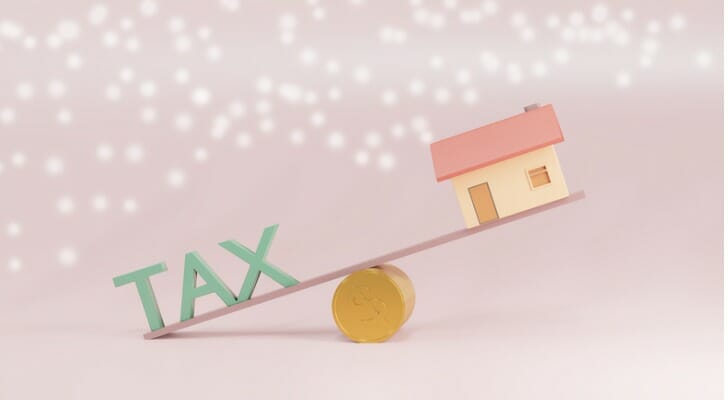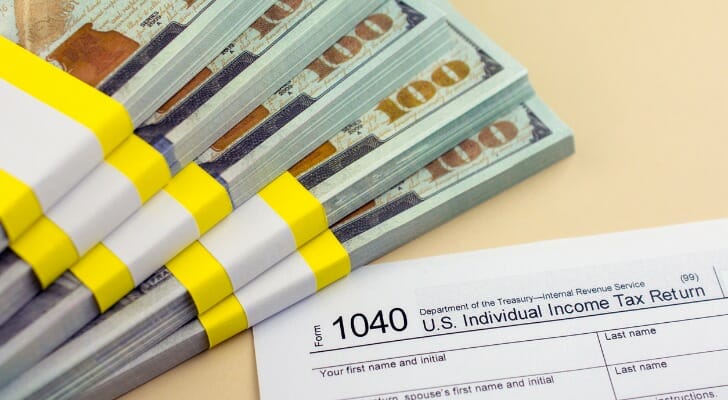Tax-lien investing allows you to gain exposure to real estate in your portfolio without having to own or maintain a physical property. When you invest in tax liens, you’re making an investment in a debt that’s owed by a property owner. As the holder of a tax lien, you can collect interest payments on the debt. This strategy can be lucrative for investors who understand how it works. However, it’s worth remembering that tax-lien investing can also carry risks.
Whether you’re interested in investing in equities, real estate or debt, consider working with a financial advisor to integrate your investments into a comprehensive financial plan.
What Is a Tax Lien?
When someone owns a piece of property, whether it’s for residential, business or investment purposes, that property is subject to taxation. Municipal and local governments can assess property taxes, based on the property’s estimated value. The property owner receives a tax bill, which they must pay.
If the owner doesn’t make good on what’s owed toward property taxes, the assessing agency can place a lien against the property. When there’s a lien in place, the property can’t be sold or refinanced until the tax debt is cleared first. The IRS can also issue tax liens against someone’s property for failure to pay federal income tax.
A tax lien is not the same thing as a tax deed. Tax deeds convey ownership of property to the agency that issued the deed, usually a tax authority. Investors can also purchase tax deeds, though they work differently.
What Is Tax-Lien Investing?
Tax-lien investing involves the purchase of tax-lien certificates. A tax-lien certificate is issued once a tax lien goes unpaid for a set period of time. This certificate specifies how much the property owner owes in unpaid taxes as well as any interest or penalties due.
Investors can then purchase these tax-lien certificates from the issuing tax authority. This certificate doesn’t convey any ownership rights to the underlying property. Instead, it gives the investor the ability to collect interest owed on the tax debt.
Tax-lien investing is possible in about 2,500 cities, townships and counties across the country that sell tax debt. But not every state allows for the sale of tax-lien certificates so whether you can pursue this investing strategy may depend on where you live.
How Tax-Lien Investing Works

Tax-lien investing starts with an unpaid tax bill. When taxes go unpaid long enough, a tax lien is placed against someone’s property. If that tax lien remains unpaid, then a tax-lien certificate is issued. If the sale of tax-lien certificates is possible, the highest bidder will win it in an auction.
Tax-lien certificate auctions can take place online or in person. If you place a bid on a tax-lien certificate and win, you’re responsible for paying the tax bill in full along with any interest or penalties due. You’d then make money on your investment as the property owner pays back the tax debt with interest. The interest rate a property owner will pay can depend on where tax-lien certificate is issued.
For example, in Iowa the rate is 2% per month on the unpaid balance. 1 In Florida, on the other hand, the rate varies from 0% to 18%. 2 The interest rate that applies can determine the rate of return you earn on a tax-lien certificate investment.
Tax authorities typically allow homeowners a set redemption period in which to pay their outstanding tax debt. This may last anywhere from one to three years, depending on the county or state laws regarding tax liens. If the homeowner fails to pay back the tax debt, the holder of a tax-lien certificate could move ahead with a foreclosure proceeding to claim ownership of the property.
Pros and Cons of Tax-Lien Investing
Tax-lien investing can offer both benefits and risks to investors. The most obvious advantage is the potential to earn high returns for what may be a small investment. You may be able to purchase tax-lien certificates with just a few hundred or a few thousand dollars and generate returns that are well above what you might earn investing in the market.
This assumes, of course, that the property owner repays the tax debt. If the homeowner doesn’t pay, then you won’t be able to collect any interest on the tax debt. You could move ahead with a foreclosure proceeding and take ownership of the property. But that may require an additional investment of time and money. Meanwhile, you’d have to decide what to do with the property if foreclosure occurs.
Owning a rental property or fixing and flipping property can be lucrative. But again, you’ll likely be putting additional time and money into the property in order to generate a return on your investment. That may not suit you if you prefer a more hands-off approach to real estate investing.
How to Invest in Tax-Lien Certificates
If you’re looking to invest in tax-lien certificates, you’ll first need to determine if purchasing public tax debt is possible in your area. Assuming it is, the next step is finding a tax-lien certificate auction to participate in. Your local tax assessor’s office should be able to tell you when upcoming auctions are happening.
Tax-lien certificates are usually sold at public auctions, which can be held in person at county courthouses or online through government-run platforms. To participate, you typically need to register with the county or auction website, place a deposit or proof of funds and then bid on available liens. The winning bidder pays the outstanding taxes upfront and, in return, holds the lien that accrues interest until the debt is repaid.
The most important aspect of tax-lien investing is doing your research. Specifically, that means understanding what you are investing in and which specific risks apply. A property that has multiple liens against it, for example, may be a poor investment if the property owner is unable to or seems unlikely to repay them.
Also, consider how much of your portfolio you’re comfortable allocating to tax-lien certificates. While they can be profitable, you’re taking a risk on the property owner paying back their debts. Redemption periods may mean waiting several months or even years to collect interest on your investment.
Bottom Line

Tax-lien investing can be attractive if you have the cash to invest and you don’t mind the prospect of a longer holding period to see a return. It’s important to keep the risks in mind, however, as there are no guarantees that your investment will pay off. Completing your due diligence before investing in tax liens can help you to better understand what you’re buying and your potential return on investment (ROI).
Tips for Investing in Tax Liens
- Consider talking to a financial advisor about tax-lien investing and whether it may be right for you. Finding a qualified financial advisor doesn’t have to be hard. SmartAsset’s free tool matches you with vetted financial advisors who serve your area, and you can have a free introductory call with your advisor matches to decide which one you feel is right for you. If you’re ready to find an advisor who can help you achieve your financial goals, get started now.
- Tax-lien laws vary widely by state and county, from how auctions are run to the interest rates offered and the length of redemption periods. Taking time to understand the specific regulations in the area where you plan to invest can help you avoid surprises and make more informed bidding decisions.
Photo credit: ©iStock.com/Roman Didkivskyi, ©iStock.com/~UserGI15994093, ©iStock.com/Ridofranz
Article Sources
All articles are reviewed and updated by SmartAsset’s fact-checkers for accuracy. Visit our Editorial Policy for more details on our overall journalistic standards.
- Property Tax Frequently Asked Questions. https://www.iowatreasurers.org/index.php?module=pfaq. Accessed 10 Oct. 2025.
- Statutes & Constitution: View Statutes : Online Sunshine. 10 Oct. 2025, https://www.leg.state.fl.us/Statutes/index.cfm?App_mode=Display_Statute&URL=0100-0199/0197/Sections/0197.172.html.
